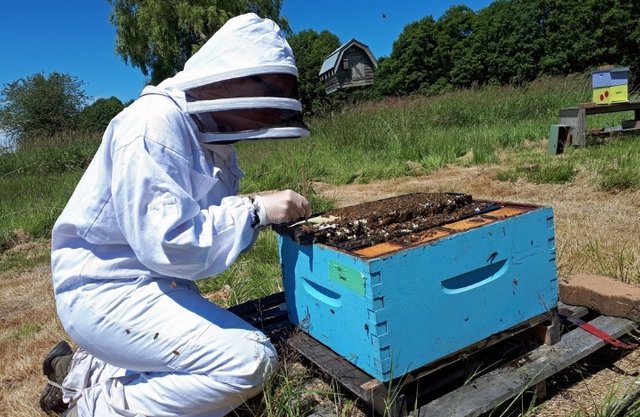Sometimes the bees suddenly die and shrink and there is a sad news that the ecosystem is approaching a serious problem. Because of this, interest in "urban beekeeping", which causes punishment in rooftops and parks, is increasing. In fact, research has shown that bees grow better in cities than in rural areas. But research has shown that downtown bees can serve as pollution detectors as well as preserve urban environments.
Researchers at the University of British Columbia, Canada and the Oregon State University's Department of Oceanography and Atmospheric Sciences have analyzed the honey content of bees grown in urban beekeeping, which can help identify pollution sources and sources of environmental pollutants. The results of this study were published in the latest issue of Nature Sustainability (Sustainability) (March 12).
The researchers analyzed 17,000 honeycomb honeycombs in Vancouver, Canada and six nearby cities, and analyzed the various elements, including lead, zinc, and copper, contained in honey from the honeycomb. The chemical composition of honey varies depending on the plants, water, and atmospheric conditions of the honey bee, so honey is a kind of 'environmental fingerprint'.
The chemical composition of the honey, developed by the researchers, is known to measure the degree of contamination of a pool of Olympic stadium specimens, dropping a drop of ink into the full water.
In particular, the researchers focused on lead and analyzed the concentration of lead in the honey from Vancouver, which was below the World Health Organization (WHO) recommendation. Instead, it was found that the concentration of lead was somewhat higher than that of other areas, although traffic volume was high, urban population density was high, and areas near industrial activities were not close enough. The lead content found in honey, which is active in industrial activities or close to the harbor area, has been analyzed to be artificial, which is inconsistent with the lead content found in nature.
However, the researchers explained that these ingredients do not affect health at all. The researchers said that to consume honey, or to have health effects, a 600g (two cups or more) honey should be drunk daily for more than 10 years without any loss.
Dr. Kate Smith, Ph.D., British Columbia University, Canada, said, "Our detection methodology is based on the fact that honey has a unique characteristic and taste depending on the ratio of various elements. It can act as a more sensitive pollutant than other measuring devices. "We should pay attention to the fact that this study increases the possibility of 'civic science' that can connect the interests of science and community and enable citizens to participate directly in scientific research," he said.
Professor Dominique Weiss, professor at British Columbia University, said, "As more city beekeeping cases grow in recent years, using this technology will enable us to monitor global environmental changes cheaply and precisely, did.

Source
Direct translation without giving credit to the original author is Plagiarism.
Repeated plagiarism is considered spam. Spam is discouraged by the community and may result in action from the cheetah bot.
More information on Image Plagiarism
If you believe this comment is in error, please contact us in #disputes on Discord
Please note that direct translations including attribution or source with no original content is also considered spam.
Downvoting a post can decrease pending rewards and make it less visible. Common reasons:
Submit
Amazing.
I would never have believed that statement.
the researchers give us a big surprise every day.
Well explicit when they say that honey is like a trace in the pollution of the environment.
Downvoting a post can decrease pending rewards and make it less visible. Common reasons:
Submit
Finding new facts seems to give us a life force all the time ^^
Downvoting a post can decrease pending rewards and make it less visible. Common reasons:
Submit